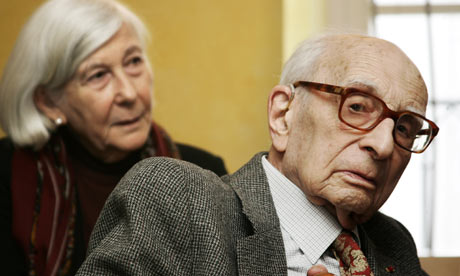
The news that Claude Lévi-Strauss has died at the grand age of 100 brings back memories of my student days, which coincided with the intellectual dominance of this great French anthropologist.
For young would-be intellectuals in the 1980s, his books The Savage Mind and The Raw and the Cooked had a biblical status. Lévi-Strauss was the high priest of structuralism. Building on the linguistic ideas of Ferdinand de Saussure, he argued that all myth, and hence all pre-scientific thought, can be understood in terms of binary oppositions – such as, er, raw and cooked.
The strange and troubling grandeur of Lévi-Strauss lay in his insistence on the "synchronic" and contempt for the "diachronic": that is, he was interested in structures of thinking that endure over the very long term. He was apparently not interested in history, in change. Paradoxically, his ideas were of great interest to historians.
I first encountered his work through a history book by Emmanuel Le Roy Ladurie that applied his methods to an 18th-century French folk tale. Other French thinkers, notably Michel Foucault in The Order of Things, sought to switch attention to the violent breaks and transformations of one intellectual order into another. But Lévi-Strauss reflected a deep, and great, tendency in French historiography to draw attention to the "longue durée".
History and art history really demand to be thought of in this way. When you read a story about, say, the marriages of Henry VIII or the life of Caravaggio, it's easy to fool yourself into believing you are glimpsing a world much like our own. To grasp the real, radical differences between one moment and another, you need to comprehend the vast web of everyday phenomena (food, illness, buildings ...) that shaped everyone's existence. These things tend to change very slowly (at any time before 1900) and Claude Lévi-Strauss directed our attention to them. His influence is subtle and will endure.

